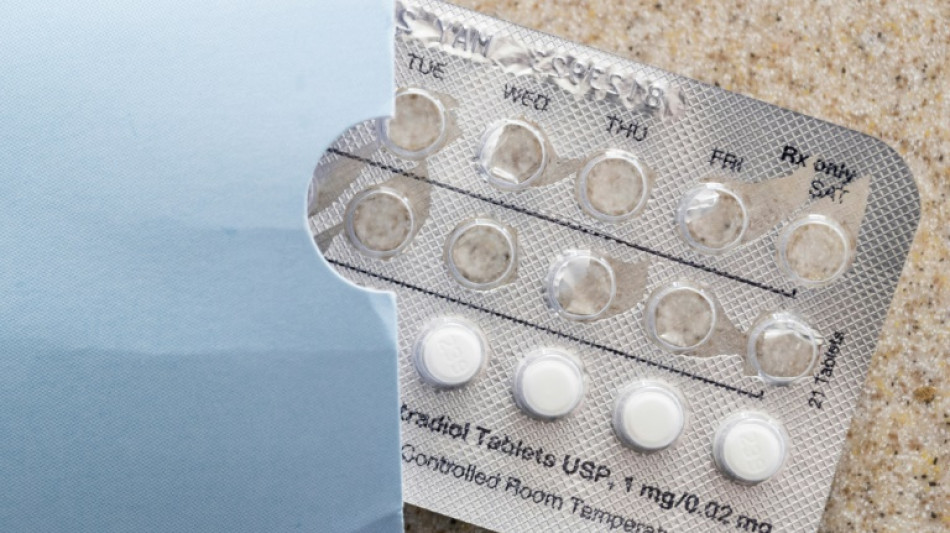
-
 UK growth slows in third quarter, dealing blow to Labour government
UK growth slows in third quarter, dealing blow to Labour government
-
Chris Wood hits quickfire double in NZ World Cup qualifying romp

-
 Markets struggle at end of tough week
Markets struggle at end of tough week
-
China tests building Moon base with lunar soil bricks

-
 Film's 'search for Palestine' takes centre stage at Cairo festival
Film's 'search for Palestine' takes centre stage at Cairo festival
-
Oil execs work COP29 as NGOs slam lobbyist presence

-
 Gore says climate progress 'won't slow much' because of Trump
Gore says climate progress 'won't slow much' because of Trump
-
'Megaquake' warning hits Japan's growth

-
 Stiff business: Berlin startup will freeze your corpse for monthly fee
Stiff business: Berlin startup will freeze your corpse for monthly fee
-
Wars, looming Trump reign set to dominate G20 summit

-
 Xi, Biden attend Asia-Pacific summit, prepare to meet
Xi, Biden attend Asia-Pacific summit, prepare to meet
-
Kyrgios to make competitive return at Brisbane next month after injuries

-
 Dominican Juan Luis Guerra triumphs at 25th annual Latin Grammys
Dominican Juan Luis Guerra triumphs at 25th annual Latin Grammys
-
Landslide win for Sri Lanka president's leftist coalition in snap polls

-
 Australian World Cup penalty hero Vine takes mental health break
Australian World Cup penalty hero Vine takes mental health break
-
As Philippines picks up from Usagi, a fresh storm bears down

-
 Tropical Storm Sara pounds Honduras with heavy rain
Tropical Storm Sara pounds Honduras with heavy rain
-
Pepi gives Pochettino win for USA in Jamaica

-
 'Hell to heaven' as China reignite World Cup hopes with late winner
'Hell to heaven' as China reignite World Cup hopes with late winner
-
Rebel attacks keep Indian-run Kashmir on the boil

-
 New Zealand challenge 'immense but fantastic' for France
New Zealand challenge 'immense but fantastic' for France
-
Under pressure England boss Borthwick in Springboks' spotlight

-
 All Blacks plan to nullify 'freakish' Dupont, says Lienert-Brown
All Blacks plan to nullify 'freakish' Dupont, says Lienert-Brown
-
TikTok makes AI driven ad tool available globally

-
 Japan growth slows as new PM readies stimulus
Japan growth slows as new PM readies stimulus
-
China retail sales pick up speed, beat forecasts in October

-
 Asian markets fluctuate at end of tough week
Asian markets fluctuate at end of tough week
-
Gay, trans people voicing -- and sometimes screaming -- Trump concerns

-
 Argentina fall in Paraguay, Brazil held in Venezuela
Argentina fall in Paraguay, Brazil held in Venezuela
-
N. Korean leader orders 'mass production' of attack drones

-
 Pakistan's policies hazy as it fights smog
Pakistan's policies hazy as it fights smog
-
Nature pays price for war in Israel's north

-
 New Zealand's prolific Williamson back for England Test series
New Zealand's prolific Williamson back for England Test series
-
Mexico City youth grapple with growing housing crisis

-
 After Trump's victory, US election falsehoods shift left
After Trump's victory, US election falsehoods shift left
-
Cracks deepen in Canada's pro-immigration 'consensus'

-
 Xi inaugurates South America's first Chinese-funded port in Peru
Xi inaugurates South America's first Chinese-funded port in Peru
-
Tyson slaps Paul in final face-off before Netflix bout

-
 England wrap-up T20 series win over West Indies
England wrap-up T20 series win over West Indies
-
Stewards intervene to stop Israel, France football fans clash at Paris match

-
 Special counsel hits pause on Trump documents case
Special counsel hits pause on Trump documents case
-
Japan's Princess Mikasa, great aunt to emperor, dies aged 101

-
 Cricket at 2028 Olympics could be held outside Los Angeles
Cricket at 2028 Olympics could be held outside Los Angeles
-
Trump names vaccine skeptic RFK Jr. to head health dept

-
 Ye claims 'Jews' controlling Kardashian clan: lawsuit
Ye claims 'Jews' controlling Kardashian clan: lawsuit
-
Japan into BJK Cup quarter-finals as Slovakia stun USA

-
 Sri Lanka president's party headed for landslide: early results
Sri Lanka president's party headed for landslide: early results
-
Olympics 'above politics' say LA 2028 organisers after Trump win

-
 Panic strikes Port-au-Prince as residents flee gang violence
Panic strikes Port-au-Prince as residents flee gang violence
-
Carsley hails England's strength in depth as understudies sink Greece

| RBGPF | 100% | 61.84 | $ | |
| CMSC | -0.24% | 24.55 | $ | |
| JRI | -0.23% | 13.21 | $ | |
| GSK | -2.09% | 34.39 | $ | |
| BCC | -1.57% | 140.35 | $ | |
| BCE | -1.38% | 26.84 | $ | |
| SCS | -0.75% | 13.27 | $ | |
| RIO | -0.31% | 60.43 | $ | |
| RELX | -0.37% | 45.95 | $ | |
| AZN | -0.38% | 65.04 | $ | |
| CMSD | -0.02% | 24.725 | $ | |
| NGG | 0.4% | 62.37 | $ | |
| RYCEF | -4.71% | 6.79 | $ | |
| BP | 1.65% | 29.05 | $ | |
| VOD | -0.81% | 8.68 | $ | |
| BTI | 0.2% | 35.49 | $ |

All hormonal contraceptives increase breast cancer risk: study
All hormonal contraceptives carry a slightly increased risk of breast cancer, including the increasingly popular progestogen-only pills, according to a study published on Tuesday.
The researchers who carried out the study stressed that the increased risk of breast cancer needs to be weighed against the benefits of hormonal contraceptives, including the protection they provide against other forms of female cancer.
Previous studies have established an increased risk of breast cancer from two-hormone, or combined, contraceptives that use both estrogen and progestogen.
While the use of progestogen-only contraceptives has been on the rise for well over a decade, little research had been performed previously on their links to breast cancer.
The study, published in the journal PLOS Medicine, found that the risk of a woman developing breast cancer was about the same for hormonal contraceptives using both estrogen and progestogen as for those using just progestogen.
According to the study, women taking hormonal contraceptives have a 20 to 30 percent higher risk of developing breast cancer than those who do not use them.
The findings are similar to those published previously, including in a vast 1996 study.
The risk remains about the same regardless of the delivery method -- oral pill, IUD, implant or injection -- or whether it is a combined pill or progestogen alone.
Taking into account that the likelihood of breast cancer increases with age, the authors of the study calculated how much absolute excess risk is associated with hormonal contraceptives.
For women taking hormonal contraceptives for a period of five years between the ages of 16 to 20, it represented eight cases of breast cancer per 100,000, they said.
Between 35 and 39 years old, it was 265 cases per 100,000.
- 'Very small increase in absolute risk' -
"Nobody wants to hear that something that they're taking is going to increase their risk of breast cancer by 25 percent," said Gillian Reeves, a professor of statistical epidemiology at the University of Oxford and a co-author of the study.
"What we're talking about here is very small increase in absolute risk," Reeves said.
"These increases in risk for breast cancer have to, of course, be viewed in the context of what we know about the many benefits of taking hormonal contraceptives," she added.
"Not just in terms of birth control, but also because we know that oral contraceptives actually provide quite substantial and long term protection from other female cancers, such as ovarian cancer and endometrial cancer."
The study also confirmed, like others, that the risk of breast cancer declines in the years after a woman stops using hormonal contraceptives.
Stephen Duffy, a professor at Queen Mary University of London who did not take part in the study, described the findings as "reassuring in that the effect is modest."
The study involved data from nearly 10,000 women under the age of 50 who developed breast cancer between 1996 and 2017 in the United Kingdom, where the use of progestogen-only contraceptives is now as widespread as the combined method.
Reeves said there were several explanations for the growing use of progestogen-only contraceptives.
They are recommended for women who are breast-feeding, who may be at risk of cardiovascular problems or smokers above the age of 35.
"It might just be because women are taking hormonal contraceptives possibly into later years now," Reeves said.
"So they are naturally at higher risk of those other conditions for which risk is increased with combined contraceptives."
P.Santos--AMWN


